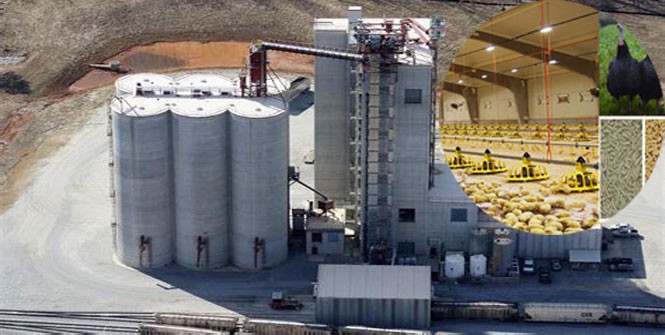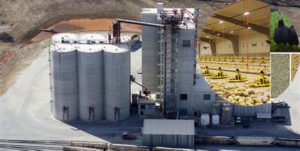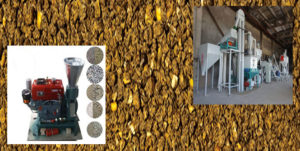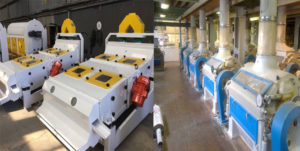
[caption id="attachment_983" align="aligncenter" width="555"] File Picture[/caption]
Desk Report: Global tensions between countries and tougher market conditions, as well as various trade wars are widening the already existing problems. Under these conditions, high input costs in Turkey too are forcing manufacturers and Turkey in recent years, however, a mobility on the foreign exchange market also created a great deal of pressure for Turkish manufacturers.
At the beginning of 2018, foreign currencies started the year with the rate of around US $3.70, EUR €4.50 TL and GBP £5.00 TL. The Turkish Lira has decreased in some value, due to various external factors and problems. Exchange rates followed a bumpy course up until May, followed by the inflation figures announced in the first week of May, followed by $4.20 and €5.00 respectively. On August 13th 2018 rates reached $7.2169 and the EUR and TL 8.2245. End of the year exchange rates closed with $5.2920 and €6.0550. Following Turkey's general election on March 31st, 2019, rates were approximately $5.8018 and €6.5575.
On April 10th, 2019 a 'New Economy Package' was announced by the Turkish government which included requirements concerning the reform of tourism, education, industry, judiciary, finance and agriculture. It has been announced that it will take place during the 4.5-year term currently being run.
The agricultural sector, which is one of the critical sectors within Turkey, took its place among the issues to be solved in this project at first. In order to reduce the effect of high food prices on the economy due to inflation, production planning will be made according to individual regions and the National Unity Project.
In order to keep the prices under control, a company with the name Sera AŞ, which are part of the Turkish Government, will be established. In 2019, 2000 hectares of technological greenhouses will be built under the roof of this company.
[caption id="attachment_984" align="aligncenter" width="457"]
File Picture[/caption]
Desk Report: Global tensions between countries and tougher market conditions, as well as various trade wars are widening the already existing problems. Under these conditions, high input costs in Turkey too are forcing manufacturers and Turkey in recent years, however, a mobility on the foreign exchange market also created a great deal of pressure for Turkish manufacturers.
At the beginning of 2018, foreign currencies started the year with the rate of around US $3.70, EUR €4.50 TL and GBP £5.00 TL. The Turkish Lira has decreased in some value, due to various external factors and problems. Exchange rates followed a bumpy course up until May, followed by the inflation figures announced in the first week of May, followed by $4.20 and €5.00 respectively. On August 13th 2018 rates reached $7.2169 and the EUR and TL 8.2245. End of the year exchange rates closed with $5.2920 and €6.0550. Following Turkey's general election on March 31st, 2019, rates were approximately $5.8018 and €6.5575.
On April 10th, 2019 a 'New Economy Package' was announced by the Turkish government which included requirements concerning the reform of tourism, education, industry, judiciary, finance and agriculture. It has been announced that it will take place during the 4.5-year term currently being run.
The agricultural sector, which is one of the critical sectors within Turkey, took its place among the issues to be solved in this project at first. In order to reduce the effect of high food prices on the economy due to inflation, production planning will be made according to individual regions and the National Unity Project.
In order to keep the prices under control, a company with the name Sera AŞ, which are part of the Turkish Government, will be established. In 2019, 2000 hectares of technological greenhouses will be built under the roof of this company.
[caption id="attachment_984" align="aligncenter" width="457"] File Picture[/caption]
Red meat will be developed via ovine livestock to balance prices. With the support to be given to farmers, the 47 million small ruminants currently farmed will be increased to 100 million within four years.
Despite all these troubles, Turkey continues to move forward with confident steps with the aim to progress their floumilling industry. Recently, the discovery of the first wheat cultivation and, quite possibly, the very beginning of farming, was discovered in Göbeklitepe, dating back 12,000 years. This news only highlights Turkey's dedication to milling.
In the last six years, Turkey has been the world leader in flour exports to over a third of the world market and it looks this will continue throughout 2019. The location of the country, in terms of its proximity to raw materials and markets and the opportunities in logistics, helps Turkey with this significant increase.
Meanwhile, The Turkish Flour Industrialists' Federation (TUSAF) which is the federation of the seven regions in Turkey, scored another success. With an agreement between the Federation and the International Association of Operative Millers (IAOM), Turkey has taken the Eurasia region administration and is the Eurasian Governing Council and the Executive Director, which regulates 32 countries in the region.
Turkish Flour Industrialists' Federation (TUSAF) and the International Association of Operative Millers (IAOM) were held together at the Eurasian Workshop on April 24-25th in Antalya and after the workshop, between April 25-28th, 2019, TUSAF held the 15th International Congress and Exhibition's in the same place.
[caption id="attachment_985" align="aligncenter" width="473"]
File Picture[/caption]
Red meat will be developed via ovine livestock to balance prices. With the support to be given to farmers, the 47 million small ruminants currently farmed will be increased to 100 million within four years.
Despite all these troubles, Turkey continues to move forward with confident steps with the aim to progress their floumilling industry. Recently, the discovery of the first wheat cultivation and, quite possibly, the very beginning of farming, was discovered in Göbeklitepe, dating back 12,000 years. This news only highlights Turkey's dedication to milling.
In the last six years, Turkey has been the world leader in flour exports to over a third of the world market and it looks this will continue throughout 2019. The location of the country, in terms of its proximity to raw materials and markets and the opportunities in logistics, helps Turkey with this significant increase.
Meanwhile, The Turkish Flour Industrialists' Federation (TUSAF) which is the federation of the seven regions in Turkey, scored another success. With an agreement between the Federation and the International Association of Operative Millers (IAOM), Turkey has taken the Eurasia region administration and is the Eurasian Governing Council and the Executive Director, which regulates 32 countries in the region.
Turkish Flour Industrialists' Federation (TUSAF) and the International Association of Operative Millers (IAOM) were held together at the Eurasian Workshop on April 24-25th in Antalya and after the workshop, between April 25-28th, 2019, TUSAF held the 15th International Congress and Exhibition's in the same place.
[caption id="attachment_985" align="aligncenter" width="473"] File Picture[/caption]
The organization brought together sector stakeholders and proved to be a very successful event, much like it is every year. This year also included Professor Dr. Gordon Smith and his team of Cereal Science and Industry Department Heads at Kansas State University.
TUSAF recently held an election on April 4th, 2019. The members who were voting decided to continue with Eren Günhan Ulusoy as a Chairman. The Board of Directors consists of 13 members. Seven people in the Board of Directors were elected again and the board will have six new members.
After the election, Eren Günhan Ulusoy shared some information on a private TV channel about the industry. He stated that Turkey's wheat production in recent years was an impressive 20 million tones. However, as a result of the increase in inputs due to foreign exchange after the new season, the farmers have turned to planting products other than wheat, and therefore, there is a decrease in wheat plantation areas. At the beginning of the 2000s, there was a wheat plantation area of 9.5 million hectares, and today, this area has fallen to 7.4 million hectares.
Turkey also has a traditional structure in the milling sector, as in many areas. Today, many companies operating in the sector have entered this area from the family elders. This has allowed the companies to grow exponentially. One of these experiences is 'collective work' culture. The 'collective work' culture, which usually means the completion of such works, such as harvesting, cultivating a person's field, in rural settlements, shows itself today under the activities of associations. Turkey's institutions with such riches, operating in the same sector firms to finding common solutions to problems in bringing together industry and are contributing to the development of relations within the sector.
The Flour mill and Sector Machinery Manufacturers Association (DESMÜD), has rolled up its sleeves to train its specialized technical personnel. The association management, which has been working on the subject for a long time, began to clarify the details of the training.
[caption id="attachment_986" align="aligncenter" width="479"]
File Picture[/caption]
The organization brought together sector stakeholders and proved to be a very successful event, much like it is every year. This year also included Professor Dr. Gordon Smith and his team of Cereal Science and Industry Department Heads at Kansas State University.
TUSAF recently held an election on April 4th, 2019. The members who were voting decided to continue with Eren Günhan Ulusoy as a Chairman. The Board of Directors consists of 13 members. Seven people in the Board of Directors were elected again and the board will have six new members.
After the election, Eren Günhan Ulusoy shared some information on a private TV channel about the industry. He stated that Turkey's wheat production in recent years was an impressive 20 million tones. However, as a result of the increase in inputs due to foreign exchange after the new season, the farmers have turned to planting products other than wheat, and therefore, there is a decrease in wheat plantation areas. At the beginning of the 2000s, there was a wheat plantation area of 9.5 million hectares, and today, this area has fallen to 7.4 million hectares.
Turkey also has a traditional structure in the milling sector, as in many areas. Today, many companies operating in the sector have entered this area from the family elders. This has allowed the companies to grow exponentially. One of these experiences is 'collective work' culture. The 'collective work' culture, which usually means the completion of such works, such as harvesting, cultivating a person's field, in rural settlements, shows itself today under the activities of associations. Turkey's institutions with such riches, operating in the same sector firms to finding common solutions to problems in bringing together industry and are contributing to the development of relations within the sector.
The Flour mill and Sector Machinery Manufacturers Association (DESMÜD), has rolled up its sleeves to train its specialized technical personnel. The association management, which has been working on the subject for a long time, began to clarify the details of the training.
[caption id="attachment_986" align="aligncenter" width="479"] File Picture[/caption]
The association determined the training programs of teachers who would train in the milling department as part of the training protocol with the Ministry of National Education. Teachers working in the field of Machine Technology in Vocational and Technical Anatolian High Schools in Gaziantep, Konya and Coram will be given training in Ankara Sincan Erkunt Vocational Training Center and ASOSEM.
Training on Milling Machines is taking place on July 1-5th, 2019, Grinding Technology will be held on September 2-6th, 2019.
In this way, the Turkish companies that export machinery and spare parts to different continents and countries of the world will find the specialized technical personnel they seek among the students they have taught, according to their own schools and needs.
DESMÜD, which plans to attend the second of the World milltech Fair in 2021, which brought the flourmilling sector together in 2018, will be organizing an event under the name of the World Milling Technologies Conference and Exhibition, between October 31-November 3rd, 2019 in Antalya.
TABADER also organized the second Awards to the Doyans in the Flourmilling Sector on March 20th, 2019 at WOW Hotel in Istanbul. Great interest was shown in the event where Tabader gave awards to people and institutions that contributed to the development and appreciation of the sector with their valuable work and innovative approaches.
In addition to the award ceremony, participants had the opportunity to participate in training sessions for three days in a wide scope such as flourmilling sector economy, new products, R & D, energy management in factories, diagrams, licensed warehousing, quality control, enrichment, ration preparation, flourmill machines, automation, machine maintenance and repair. At the end of the training, participants were given certificates. The event which was named as 'TABADER - IFP 2019 International Flour, Feed, Pulses Summit' hosted domestic and foreign experts who shared their experiences and knowledge about the sector.
Source: Milling and Grain
SZK
File Picture[/caption]
The association determined the training programs of teachers who would train in the milling department as part of the training protocol with the Ministry of National Education. Teachers working in the field of Machine Technology in Vocational and Technical Anatolian High Schools in Gaziantep, Konya and Coram will be given training in Ankara Sincan Erkunt Vocational Training Center and ASOSEM.
Training on Milling Machines is taking place on July 1-5th, 2019, Grinding Technology will be held on September 2-6th, 2019.
In this way, the Turkish companies that export machinery and spare parts to different continents and countries of the world will find the specialized technical personnel they seek among the students they have taught, according to their own schools and needs.
DESMÜD, which plans to attend the second of the World milltech Fair in 2021, which brought the flourmilling sector together in 2018, will be organizing an event under the name of the World Milling Technologies Conference and Exhibition, between October 31-November 3rd, 2019 in Antalya.
TABADER also organized the second Awards to the Doyans in the Flourmilling Sector on March 20th, 2019 at WOW Hotel in Istanbul. Great interest was shown in the event where Tabader gave awards to people and institutions that contributed to the development and appreciation of the sector with their valuable work and innovative approaches.
In addition to the award ceremony, participants had the opportunity to participate in training sessions for three days in a wide scope such as flourmilling sector economy, new products, R & D, energy management in factories, diagrams, licensed warehousing, quality control, enrichment, ration preparation, flourmill machines, automation, machine maintenance and repair. At the end of the training, participants were given certificates. The event which was named as 'TABADER - IFP 2019 International Flour, Feed, Pulses Summit' hosted domestic and foreign experts who shared their experiences and knowledge about the sector.
Source: Milling and Grain
SZK
Comment Now